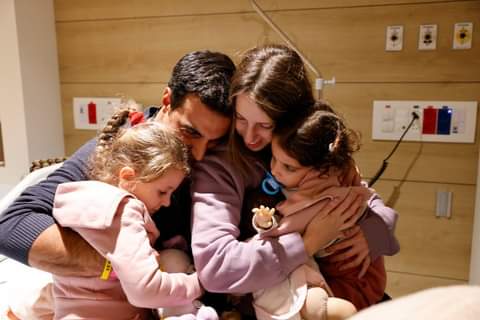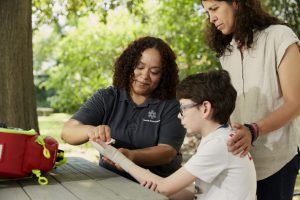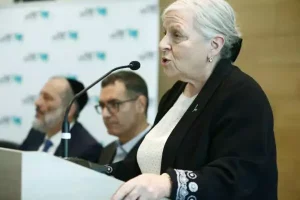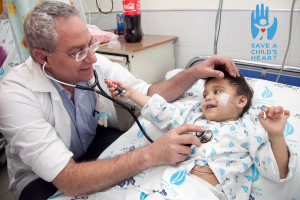Good Health and Well-Being


Home » Good Health and Well-Being » SDG 3 – Treating Children Out of Captivity
SDG 3 - Treating Children Out of Captivity
The burden on Israeli authorities entrusted with the medical repatriation of mothers and children released after being kidnapped by Hamas on October 7 is beyond comprehension.
“How Do You Treat Babies Who Don’t Speak Yet?” asked a recent Israeli media headline, summing up the complex situation now before the country. Indeed, how do you treat them – and all the others?
The Social Affairs Ministry, among the leading governmental bodies responsible for attending to the released children, is basing its action plan on accumulated experience in handling trauma victims. In this context, 60 social workers – with expertise in the field and special training for this assignment – have been readied to accompany each family with children on their journey back to as normal a life as is humanly possible under the circumstances.
The entire process begins with Israeli soldiers, who are the first to see them. Their instructions, contained in a document prepared in coordination with the world-leading Israeli Haruv Institute – which specializes in helping children who’ve suffered from abuse and neglect – are clear:
“They will introduce themselves as follows: ‘Hello, my name is… I am a soldier in the Israel Defense Forces and I am accompanying you to get home. You are in a safe place. I am here to take care of you, you are safe.”


The document calls on soldiers to refrain from answering questions from those released about the fate of their family members (many of whom were murdered by Hamas or are still being held by it). It also recommends that in case of the need for physical contact to alleviate difficulties (in walking, for instance), soldiers should present this in the form of a suggestion and await consent. In addition, soldiers are advised to avail themselves of mental health assistance in view of the heavy emotional burden of their task.
Simple? Far from it. According to the Social Affairs Ministry’s child welfare services director (Hebrew), “there is no ready-made game plan anywhere in the world for handling the return of kidnapped children” (a Ministry source has been quoted as saying that Israel did reach out to counterparts in Ukraine to learn from their own experience). Her remark is backed by the head of Haruv: “It’s terra incognita. Anyone taking upon themselves to be party of such a group of therapists must realize that it is also a study group that will meet weekly and share the accumulated knowledge.”
Hospitalization is a key stage in the abductees’ repatriation, of course. The Health Ministry turned to six of the country’s leading medical institutions to care for them in isolated areas of their facilities with teams of pediatricians, gynecologists, mental health professionals and legal medicine specialists on hand.
The institutions chosen include Wolfson Medical Hospital, considered particularly advanced in the treatment of sexual assault victims. Apropos: in cases where signs of rape are detected, physicians have reportedly been instructed by the Health Ministry to call in professionals to assess the possibility of conducting interviews and collecting evidence (to the extent possible without provoking trauma among the women in question).
The return of the abductees to Israel is clearly the first step in a long journey back to good health and wellbeing.
We wish them all a speedy recovery.
Related articles


SDG 3- Ready Responders – Life Saving Innovation
Good Health and Well-Being SDG 3- Life Saving Innovation from Israel Inspires the US An Interview with Amichai Faran from Ready Responders “We bring same


SDG 3 – Responsibility for our Seniors
Good Health and Well-Being SDG 3 – Responsibility for our Seniors As far as we can tell, Israel’s new Government has yet to stabilize –


SDG3-Save a Child’s Heart every 24 Hours
Good Health and Well-Being Save a Child’s Heart every 24 Hours Save a Child’s heart save the lives of critically ill children who are suffering


















